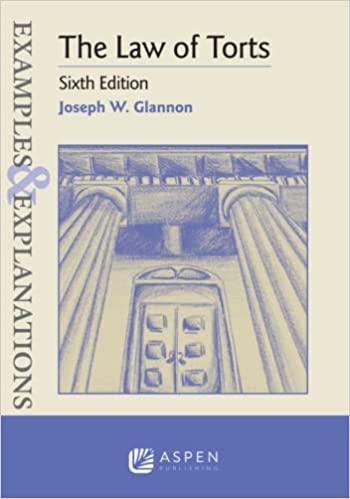Question
Monsanto is one of the world's largest industrial agriculture businesses. For much of its history, Monsanto has dealt in controversial products from artificial sweeteners to
Monsanto is one of the world's largest industrial agriculture businesses. For much of its history, Monsanto has dealt in controversial products from artificial sweeteners to Agent Orange to pesticides and herbicides. One of the more recent additions to Monsanto's product portfolio has been genetically modified seeds. GM products have stirred up controversy everywhere they are distributed, and Monsanto, being a huge multinational corporation and a major producer, is at the center of the debate. This case deals with the ethical implications involved in producing and selling a product with unknown health and environmental side effects. Monsanto claims that its products are safe, even beneficial for society. However, critics are not convinced. A major issue in this case pertains to the debate over whether genetically modified plants (GMO) and substances (milk) are safe both for the environment and for human consumption. Other issues Monsanto faces have to do with intellectual property and patent protection, and the question of whether seeds can be proprietary goods. Traditionally, farmers save seeds from one year to plant in the next year, but Monsanto wanted to introduce a "kill gene" to force farmers to purchase new seeds from the company every year. The case also covers Monsanto's long history of ethical misconduct, including instances of hiding illegal pollution and taking bribes. Finally the case goes on to cover Monsanto's corporate responsibility initiatives, charitable giving, and how its GM seeds may actually help farmers in less-developed countries (LDCs). The case concludes by asserting that Monsanto claims to have realized the errors of its ways and is on the path to greater corporate responsibility in the future.
1) While Monsanto is the first to assert that it has increased food production wherever its seeds are planted, many ask at what cost? Sustainability is an increasingly popular word in the business community, as is organic. While Monsanto claims that it has helped farmers grow more food in less space using less water, no one can make the argument that what Monsanto sells is a natural product. Students should discuss the products introduced in this case, and whether or not they think the products offer advantages and hope to farmers. Do the students believe that it is a problem that farmers must be dependent on Monsanto for their seeds, pesticides, and herbicides? Or do they think there are better solutions out there? The case touches on the growing importance of organic farming, which purports to be a more thoughtful, sustainable solution to food problems that takes care of the land instead of maximizing output. Students can discuss the pros and cons of Monsanto's products, and what they think will be the long-term costs to people, animals, and society.
Step by Step Solution
There are 3 Steps involved in it
Step: 1

Get Instant Access to Expert-Tailored Solutions
See step-by-step solutions with expert insights and AI powered tools for academic success
Step: 2

Step: 3

Ace Your Homework with AI
Get the answers you need in no time with our AI-driven, step-by-step assistance
Get Started


